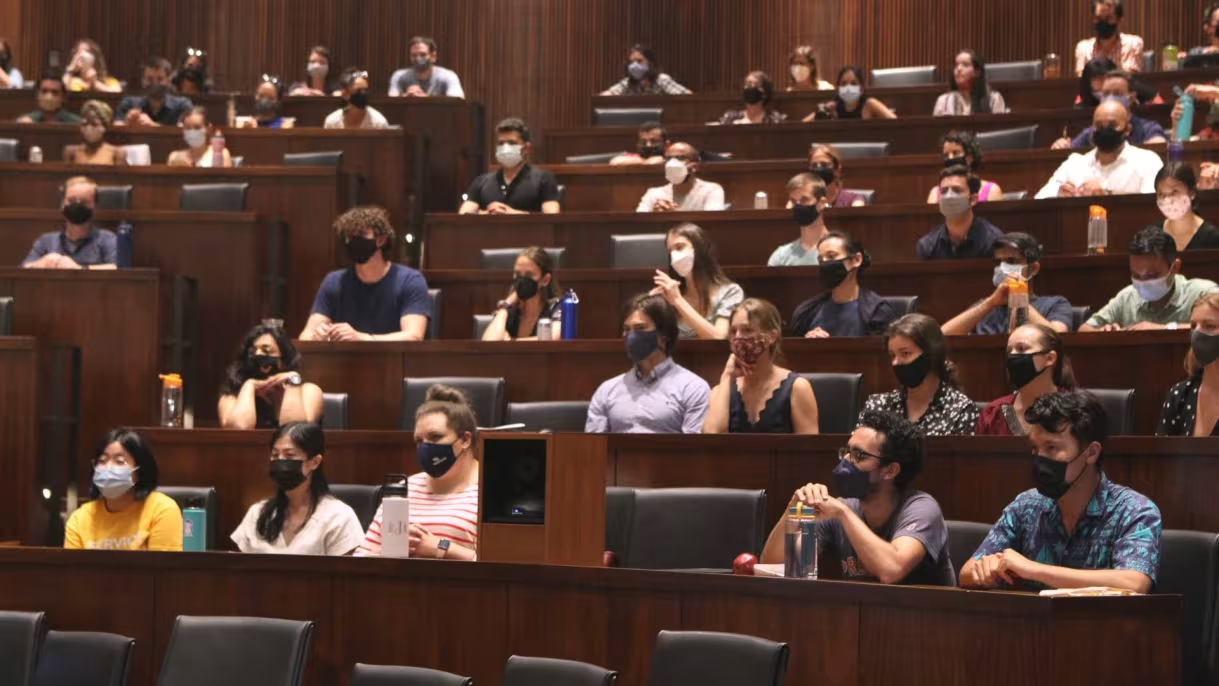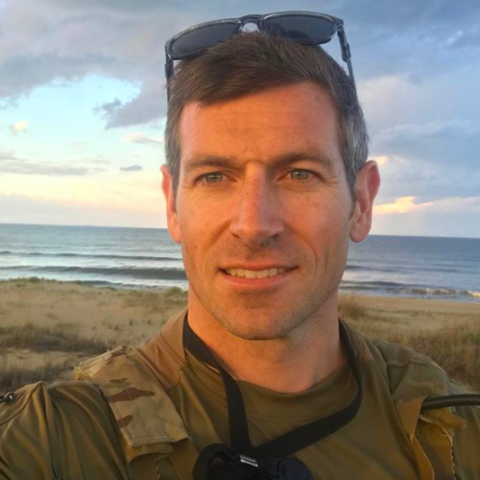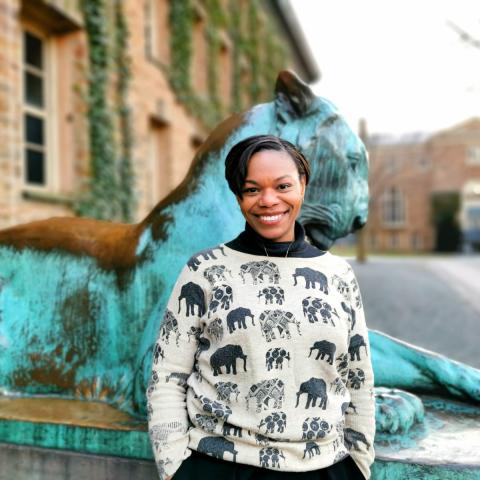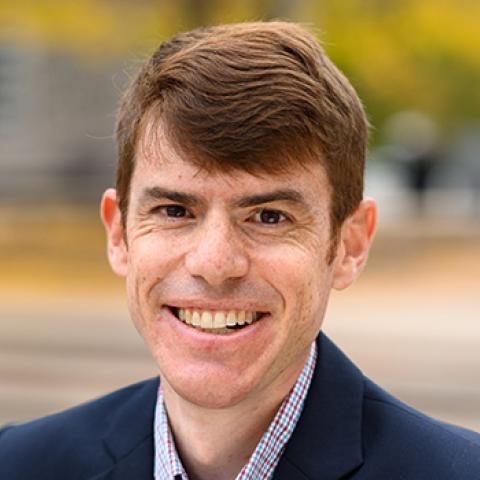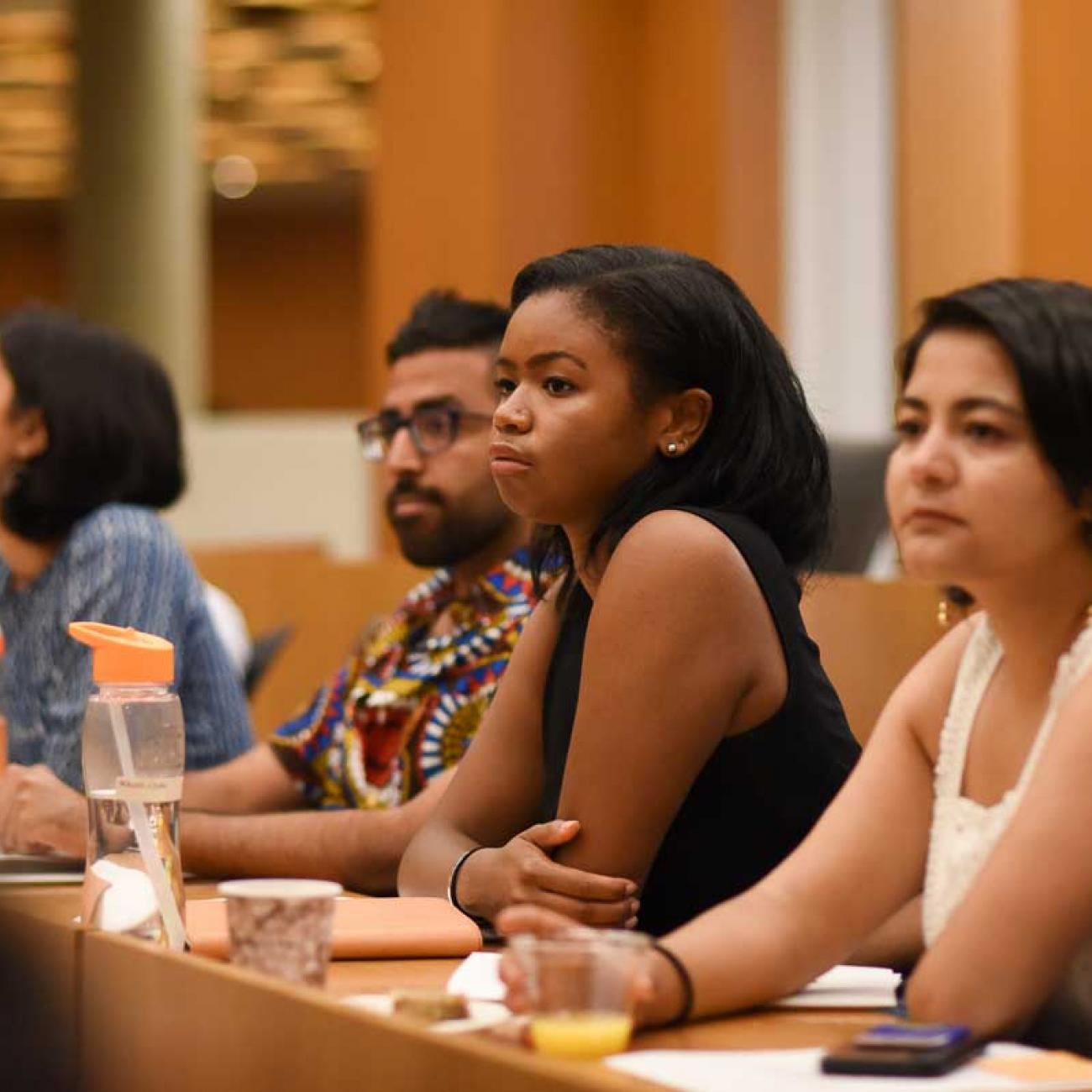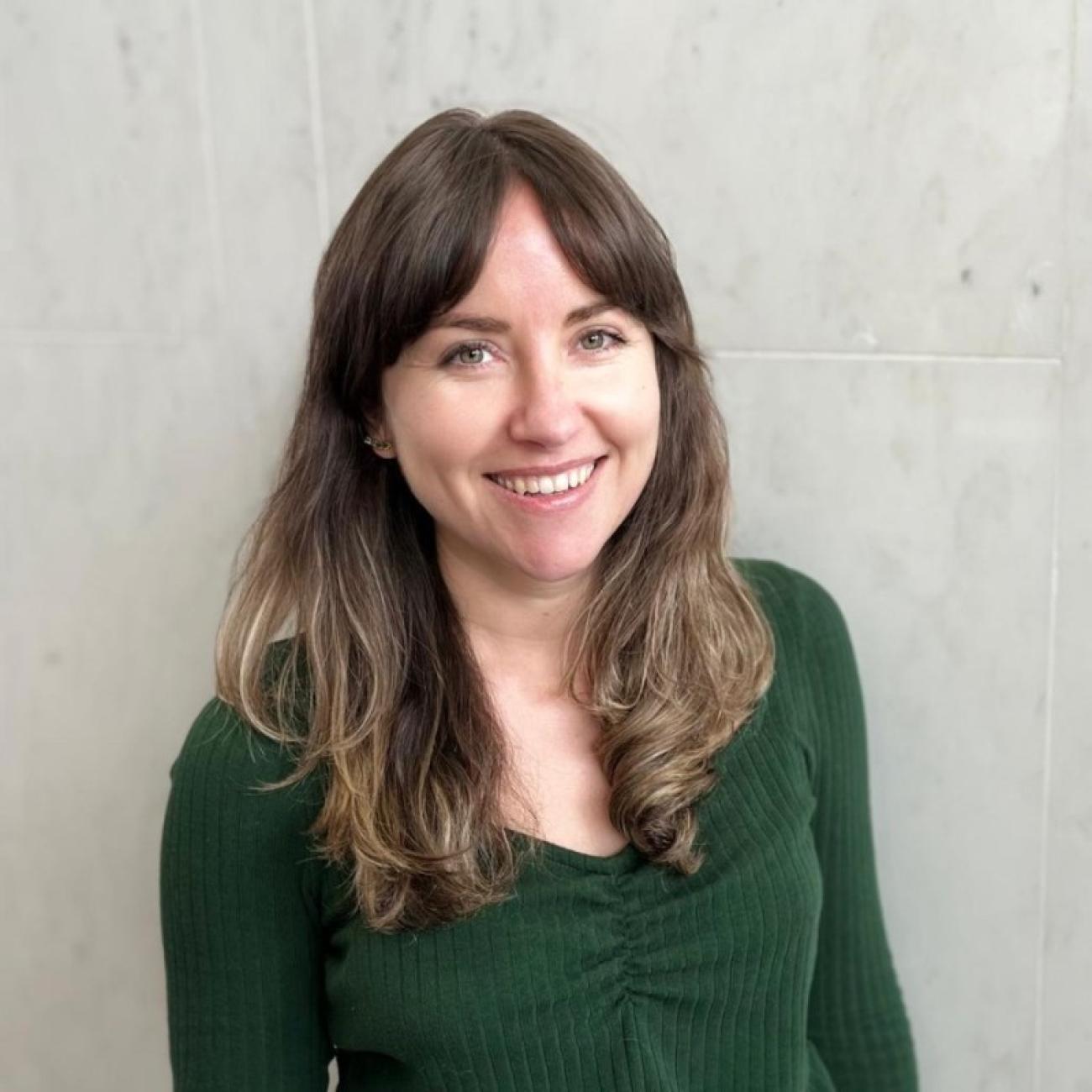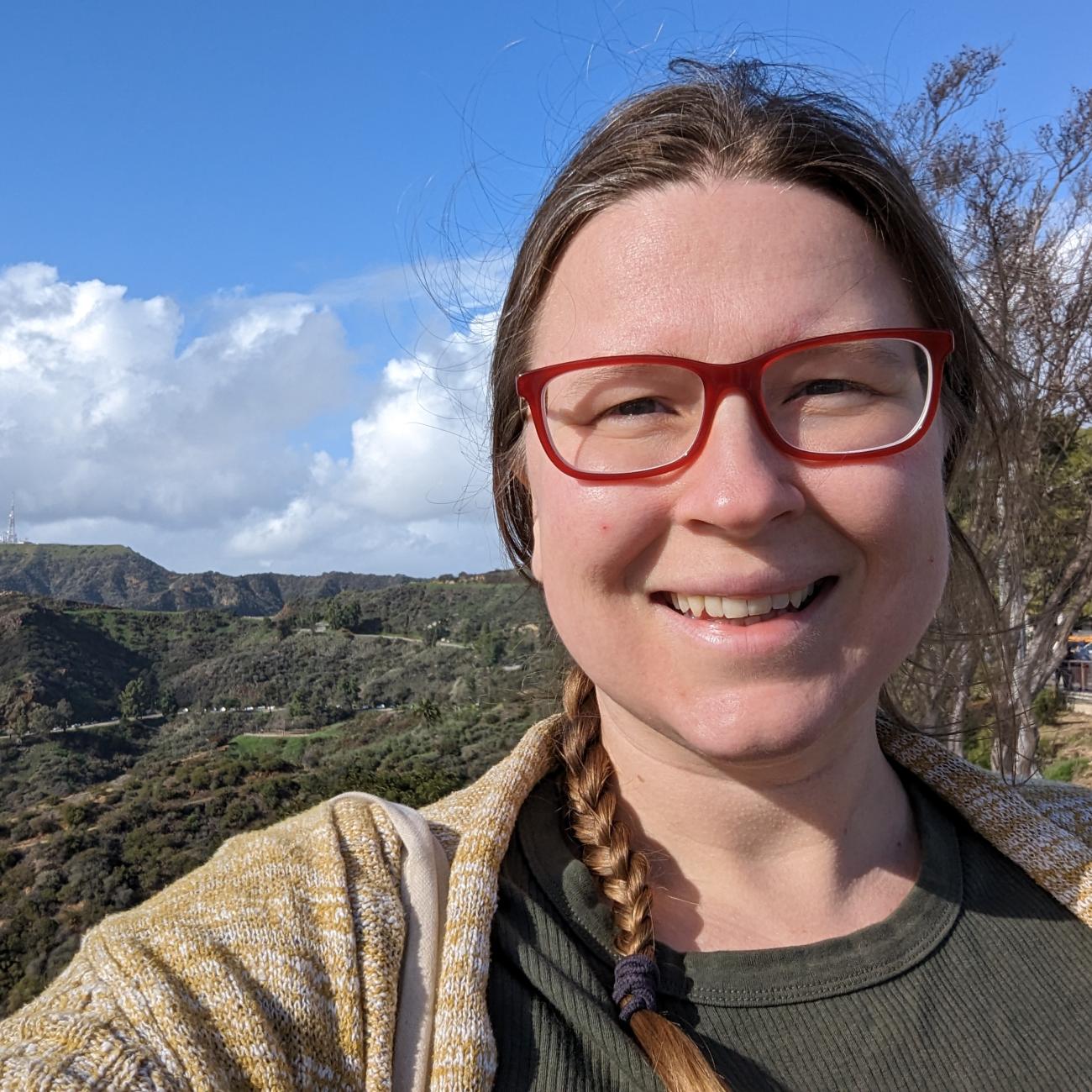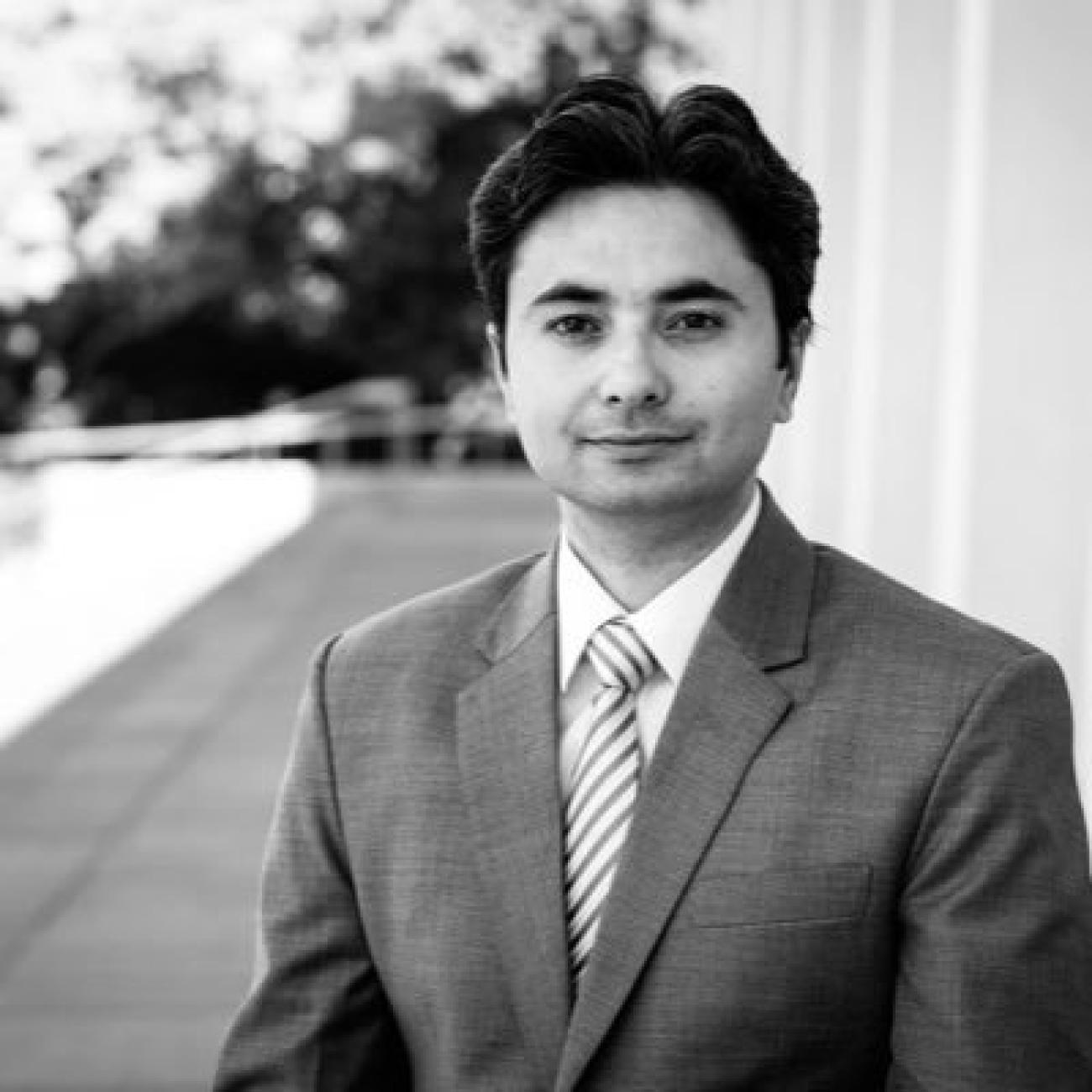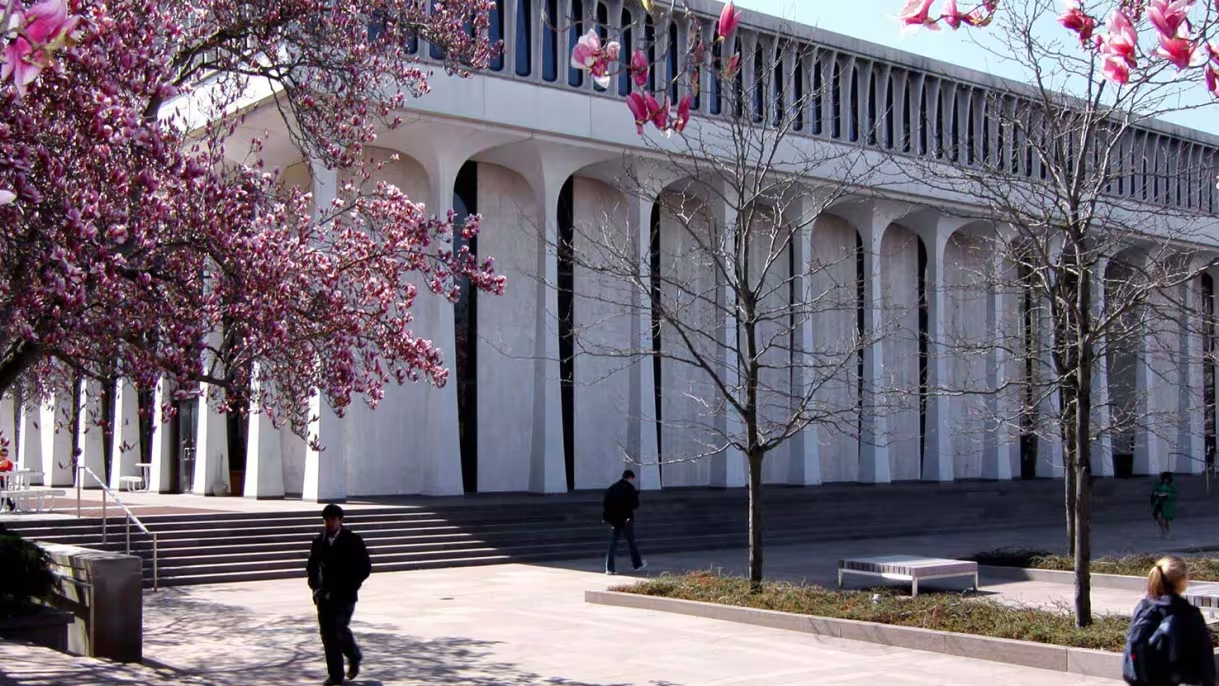Graduate Admissions Office
609-258-4836
spiaadmissions@princeton.edu
The program provides rigorous training in quantitative and policy analysis, preparing degree candidates to return to their careers with the intellectual breadth, organizational skills, and self-confidence necessary to assume greater leadership positions in an increasingly complex public service environment. A minimum of seven years of full-time work experience in the public or nonprofit sectors is required for admission.
In preparation for the pace of the curriculum, a six-week summer program is required for all MPP students. It begins in July and predates the fall semester.
MPP applicants must demonstrate leadership, creativity, a commitment to public service, and the intellectual ability to thrive in a demanding academic environment. The admission process for the MPP is equally an evaluation of the depth and commitment of the applicant’s career in public service as it is an analysis of leadership aptitude and promise. Each application is reviewed individually, comprehensively, and holistically. All decisions are made by an admissions committee.
Admissions Timeline

University Statement on Diversity and Non-Discrimination
Princeton University is committed to equal opportunity and non-discrimination. To maximize excellence, we seek talent from all segments of American society and the world, and we take steps to ensure everyone at Princeton can thrive while they are here. That is the sole rationale and purpose of our diversity and inclusion programs, all of which are voluntary and open to all, and which comply with federal and state non-discrimination laws. Princeton does not discriminate on the basis of race, sex, ethnicity, color, national origin, religion, disability, or any other protected characteristic, and Princeton does not provide special benefits or preferential treatment on the basis of a protected characteristic.
Curriculum
Satisfactory completion of eight full-term courses at the School in a plan of study approved by the relevant faculty advisor or the faculty chair of the MPP program. A course in "Values Based Leadership" during the academic year and participation in the MPP summer program, which precedes the academic year, are required. Attendance at the MPP policy forums, where each MPP student must present, is also a part of the degree.
Gelila Terrefe MPP '20
International Relations
Field I emphasizes the nature of the international system and ways in which states conduct their foreign policies, particularly in a global environment where non-state actors have increasing influence. Examples of focus include:
- Rule of law
- Diplomacy
- Elections in fragile states
- International trade
- Human rights
- National security
- Defense policy
- Climate change and global environmental governance
- International negotiation
- Weapons of mass destruction
Students tend to have previous professional experience in the field, coming from government, media, nonprofits, political organizations, policy think tanks, U.S. armed forces, Peace Corps, United Nations, and the World Bank. Since mastery of a foreign language is often needed for future careers, the School provides funding for those who study a language concurrent with their summer internship.
International Development
Field II is concerned with low-income countries and transition economies as they pursue development strategies under a wide range of political regimes and economic conditions. Field II both overlaps and complements Field I. Examples of focus include:
- Humanitarian relief
- Immigration policy
- Innovations for successful societies
- Economic development
- Democratization
- Conflict resolution
- Global health
- Poverty, inequality, and health
- Social entrepreneurship and innovation
Students typically have worked for government and nonprofit organizations as researchers, analysts, economists, community organizers, human rights observers, election monitors, and Peace Corps volunteers. As with Field I, students can study language while engaging in their summer internship. On occasion, the internship can be extended to a full year of practical experience and language acquisition.
Domestic Policy
Field III emphasizes U.S. domestic policy, with the American political system as the backdrop. Examples of focus include:
- Affordable housing
- Education
- Health policy
- Identity, power, and policy
- Immigration
- Energy and the environment
- Inequality and poverty
- Democracy or civic engagement
- Nonprofit management
- Philanthropy
- Federal, state, and local finance
- Social entrepreneurship
- Urban economic development
Typically students have worked in government, for nonprofit or community-based organizations, on political campaigns, in health policy, and in education as community organizers, program managers, teachers, labor activists, and research fellows.
Economics and Public Policy
Field IV stresses both the analysis of economic problems that prompt public policy decisions and the study of the economic effects of various policies. Students are expected to master the fundamental principles and tools of economic analysis and to develop the ability to assess and apply the results of professional economic studies.
Field IV overlaps the other three fields but goes beyond the traditional study of policy issues by providing more intensive training in the economic analysis of public policy. Some students choose between a domestic or international focus. Examples of focus include:
- International trade policy
- Behavioral economics and applications
- Public economics and public finance
- Economic development
- Program and policy evaluation
- Macro and financial policy
Students have usually worked as analysts, program associates, economists, and researchers for global research centers and programs, government agencies and central banks, multilateral organizations, and development finance institutions.
Certificates
The HHP certificate trains graduate students for careers in health policy in the public and nonprofit sectors, giving them an understanding of the determinants of health and well-being and the role that public policy plays in shaping the quality of people's lives. The program provides broad training in core topics in health policy as well as more specialized courses. It is designed for students with domestic or international health interests.
The goal of the STEP certificate is to develop a deeper understanding of current scientific, technological, and environmental issues and potential local, national, and international policy responses. Students receive interdisciplinary training that facilitates communication between technical experts and policymakers. Students may choose to focus their coursework on Energy and Environmental Policy or Information Technology Policy.
The policy focus of the UP certificate is global, and the coursework is grounded in the interdisciplinary and comparative study of cities and urban problems in both industrialized and developing countries. The UP certificate emphasizes the social, economic, and political dimensions of urban problems and is designed to prepare students for careers in urban policy analysis and economic development in national, state, and local governments, nonprofit organizations, think tanks, and international organizations.
First Destinations
Public Sector
Nonprofit Sector
Domestic Focus
International Focus

At SPIA, we see our diversity as a strength. Having varied perspectives, diverse races and ethnicities, different abilities, cultures, and gender identities in the classroom not only enriches conversation, but it also prepares students to evaluate an issue from multiple angles to help develop thoughtful and effective policy. We welcome people from small towns and big cities, from the United States and different countries all around the world, from large public schools and small private ones, as well as individuals with a whole host of distinctive lived and experienced realities. All are welcome here.

Other schools ask you to invest in your education. At SPIA, we invest in you. If you are accepted into one of our programs, then you are eligible for full financial support for tuition and required fees plus a generous living stipend. There is no extra essay or separate application process.


